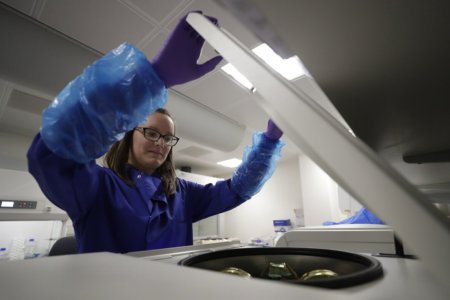
Students who go to study in the UK often harbour hopes of becoming UK permanent residents someday. The UK has come a long way as one of the world’s foremost economies and education hubs, especially with cities like London, Manchester, and Edinburgh being recognised as exciting student cities. While it’s a long road to permanent residency, you should start planning as soon as possible so as to become an ideal candidate.
Following Brexit, the UK switched to a point-based immigration system in 2021. This levels the playing field for EU and non-EU students; both start from a student visa, earning points “if they can demonstrate that they have an offer from an approved educational institution, speak English, and are able to support themselves during their studies in the UK.”

In London, people enjoy the evening sunshine by the river Thames. Source: Tolga Akmen/AFP
You must achieve at least 70 points to become a UK permanent resident. You will earn top points if you have a job offer and high academic qualifications, particularly within STEM.
The Student Route replaced the Tier-4 visa under this point-based system, and you can apply for it up to six months before your course starts. At some point in your education, you may have to switch to the Temporary Worker (Tier-5) visa, which is for student visa holders undergoing training or internship.
Upon graduating, you may apply for the Skilled Worker (Tier-2 visa), which allows you to work permanently in the UK. Entrepreneurs may opt for the Tier-1 visa, instead, which allows international graduates to set up their own business in the UK.
Work while studying
As a UK permanent resident hopeful, the best way to approach a point-based immigration system is to start collecting points early. You can do this by working while studying. Not only will part-time work supplement your finances, it also allows you to rack up experience and start scaling up the salary ladder.
To this end, student visa holders can work for up to 20 hours per week in the UK. They can even work full-time during holidays like Christmas. Remember though, you are only eligible for employment if enrolled in a full-time degree course.

A Union flag flutters in the breeze as sunbathers take advantage of the fine weather on the beach on the coast at Margate. Source: Ben Stansall/AFP
Get a job after graduating
If you hope to become a UK permanent resident, you would know all about the post-study work visa or Graduate Route. It allows foreign graduates to work in the UK for two years after graduating — three years if you have a PhD. This is the route you should take once you graduate.
Graduates on the route will be able to work flexibly, switch jobs and develop their careers as required. Think of it as the first step towards a fulfilling career and life abroad. Separately, accomplished scientists, researchers, and mathematicians who are future leaders in their field may also come to work in the UK via the Global Talent Visa.
Become a UK permanent resident
After five years in your graduate job, you will qualify for the Indefinite Leave to Remain (ILR) visa. Besides having a full-time job and stable income, you must also have a track record of good moral conduct and zero criminal charges. You must also pass the Knowledge of Life in the UK test and a recognised English language test.
Here’s where your years of building a solid portfolio come in handy. You will be able to prove that you would be a valuable UK permanent resident and that having you in the country would be of mutual benefit. You can later go on to apply for British citizenship, at which point you will qualify for full rights and benefits.










